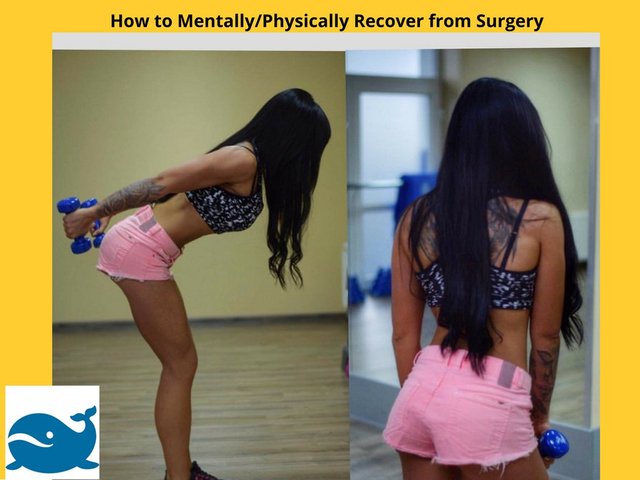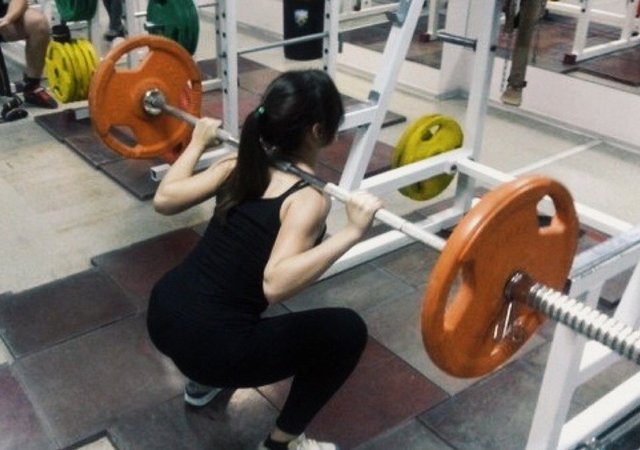
If you value staying active – whether you are an athlete or you just enjoy going to the gym, a serious injury can be deflating. It’s easy to let your motivation go out the window. You might feel like all of your hard work has been for nothing, you’re going to waste time and money, and you will never be the same again after surgery. This post is for anyone facing surgery or who just came out of surgery who is committed to staying positive and getting back on their feet.
About two years ago, I tore my meniscus in my left knee. As an athlete, the results of the MRI were devastating. Luckily, a torn meniscus is a much less serious problem than other knee issues, such as a torn ACL. However, I was still faced with both the mental and physical realization that I would need surgery and physical therapy before I could begin playing Ultimate Frisbee again. If youre faced with a similar predicament, you might find these tips helpful.

Pre-surgery tips:
Find a doctor that values what you value. As an athlete, my goal was to make a full recovery and start playing again as soon as possible. For this reason, I found a surgeon that specializes in sports medicine. He was just as committed to getting me back out on the field as I was. This helped me know that I would be able to bounce back from the surgery. Assess your personal goals and make sure that your doctor knows what is important to you. Knowing that your doctor is committed to giving you what you need will help you tremendously.

Work out other parts of your body. If you injure one part of your body, this doesn’t mean that you have to lay in bed all day watching television. For example, if you cant run because of an injury, try power walking, hiking or weight training.
Focus on other parts of your game. If you’re an athlete that is injured, focus on the mental part of your game. Keep going to practice. Watch what people do/don’t do that is effective. Watch game footage. Read articles about improving skill. While you might not be able to practice what you learn for a few months, you will still be sharpening your skills.
Maintain a positive attitude. I have a friend who is having her second ACL surgery in 5 years. But she’s staying positive. She’s getting a more effective surgery this time around that she’s really excited about. And in the 3 weeks leading up to her surgery, every day she listens to a new motivational song to get her pumped.
Post surgery tips:
Do the physical therapy. I cannot stress this enough. If you slack off on your physical therapy you will 1) take longer to recover and 2) have underlying problems down the line. Strengthening your muscles after surgery is essential to a full recovery.

Work on both sides of your body. When we get injured, we tend to focus all of our attention on the part of us that is injured. While obviously this needs to happen in order to regain full function of that body part, you can’t forget about the other side of your body. For example, my friend who tore both ACLs tore her right one first. She did the physical therapy and her right knee recovered. But she had to take a year off from activity, and during that time her left knee also suffered. She began overcompensating for the injury in her right knee by putting more pressure on her left knee, which she didn’t properly strengthen. Eventually, this caused her to tear her ACL in her left knee. So make sure that you strengthen both sides of your body during physical therapy.
Find your support system. Talk to people who have been through surgery (even if it’s a different one than yours), and surround yourself with people who are as dedicated to your recovery as you are.
Be your own encouragement. When I did physical therapy at my school, I got very little encouragement from the trainers in charge of my recovery. Because I only play a club sport, their first priority was the DI athletes. For this reason, I had to find the strength within myself to keep going to physical therapy, measure my own progress, and go through my routine without assistance. Ultimately, I didn’t let this roadblock derail me, and the PT trainers eventually recognized my hard work. When I finished PT, one said, “I’ve never seen another athlete come in here and remain so dedicated to their PT and recovery”. Knowing that I had the strength to do it myself helped to build my confidence.
Revel in the small victories. PT is hard. I never thought I’d get so excited about being able to bend my knee or support myself without crutches. It is an incredibly humbling experience. View experiences like these as achievements. Be grateful for what you can do and don’t focus on what you can’t do.

Surgery is never an easy experience, but if you are dedicated to your recovery, remain positive, and are willing to learning more about yourself throughout this unique process, you will be able to learn more about yourself from it.
Thank you! I just had surgery and reading this is motivating me to get on top of what little physical therapy I have been assigned. It's always nice to see people going out of their way offering advice to people who end up in the same situation as them.
I'll definitely be checking out your page more often as I like your content and what you're doing here.
Skrt
Anchorage, AK
Downvoting a post can decrease pending rewards and make it less visible. Common reasons:
Submit
Thank you for your kind words, I know how you are feeling now so I wish you the quickest recovery!
Downvoting a post can decrease pending rewards and make it less visible. Common reasons:
Submit